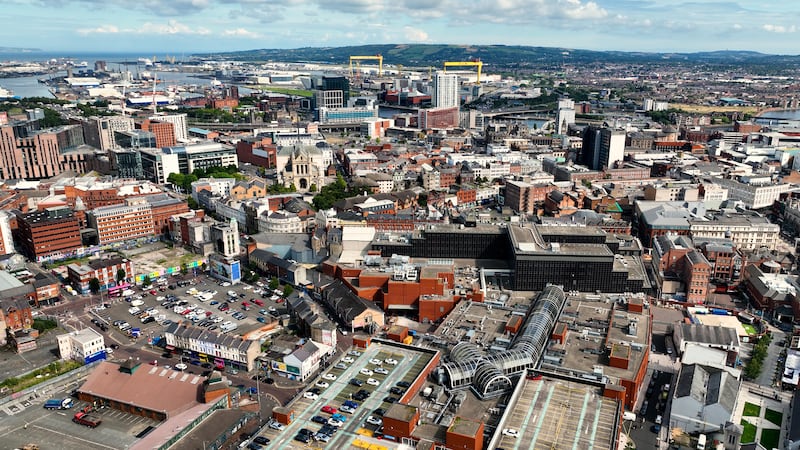SHOPPERS turned away from high streets across Northern Ireland in their droves during December, traditionally the busiest time for the retail trade.
Traders have expressed their "deep concern" after an almost 9 per cent drop in the number of people taking to the shops over the month.
The decline came as Belfast came under attack from dissident republicans with a bomb partially exploding outside the upmarket Victoria Square shopping complex at the end of November.
That was the first attack of its kind in more than a decade which led to increased security and checkpoints across the city.
However, attacks continued, with a firebomber setting himself alight inside a golf shop near Corn-market on December 17, just days after a bomb exploded outside a restaurant in the Cathedral Quarter.
Bomb scares also saw the area around City Hall including part of Christmas market cordoned off while part of High Street was closed when a suspicious object was found on the Friday before Christmas.
According to figures from the Northern Ireland Retail Consortium (NIRC), shopper numbers in the north were 8.7 per cent lower in December than the same month in 2012.
The statistics, produced by Springboard, showed Northern Ireland to be faring much worse than Britain with the average decline in footfall across the UK at 2.4 per cent.
NIRC director Aodhan Connolly said it was "deeply concerning to see that Northern Ireland suffered by far the steepest drop in footfall in December, especially after some tentative signs that growth was starting to go the other direction in November".
"Although disposable incomes are feeling the squeeze across the UK, budgets in Northern Ireland are under the greatest pressure and there are weighty tasks in the year ahead to build and maintain confidence among customers and retailers," he said.
"There are some other factors at play - we saw in last week's sales figures that multichannel was the story of the season, so increased online browsing and buying and use of services like click and collect has undoubtedly filtered through to these figures. We also saw a last minute shopping surge as expected, as many people took the weekdays leading up to Christmas off and used them to finalise their festive spending."
Head of the Northern Ireland Independent Retail Trade Association (NIIRTA) Glyn Roberts said the figures represented a "major cause for concern" and called on government to assist.
"The executive needs to produce a comprehensive joined-up town centre plan covering business rates, planning policy, car parking and regeneration.
"This new plan should include the creation of retail incubator units to support the next generation of retail entrepreneurs and a new vacant shop strategy.
"The executive should organise a major conference to bring together international experts in retail and regeneration to identify how other towns and cities across the world have successfully dealt with these problems and more importantly, how we can learn from them."


